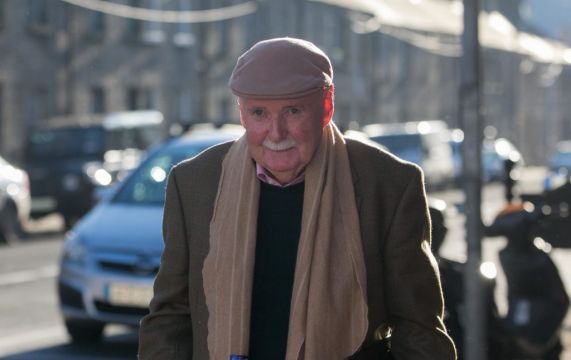A High Court judge has refused a bid by former INBS CEO Michael Fingleton to stop a case against him over alleged negligent mismanagement of the Society’s affairs.
Mr Justice Tony Hunt today refused Mr Fingleton’s application to have dismissed, or permanently stayed, the action taken against him by the special liquidators of Irish Bank Resolution Corporation, which took over INBS after it collapsed.
In proceedings initiated in 2012, IBRC, among various claims, alleges the Society’s €6 billion losses from 2008-2010 arose from development loans made when Mr Fingleton was CEO, that he had excessive control over the society’s business and flouted its lending rules.
Alleged true picture
Had the true picture of INBS’ affairs been disclosed, IBRC claims Mr Fingleton would have been summarily dismissed for breach of duty by 2007 at the latest and not paid expenses allegedly inappropriately incurred, plus some €1.2 million in performance bonuses for 2008 and 2009 when he left.
Mr Fingleton had sought to have the case halted on grounds of its breadth and his ill-health.
The judge was told Mr Fingleton suffered a severe stroke in May 2018 leaving him physically and cognitively incapacitated and various assessments have shown declining cognitive ability, particularly affecting his short-term memory and ability to critically assess evidence.
IBRC did not dispute the medical evidence, but maintained that is not a basis to halt the case, and it can proceed and be decided on the basis of objective, documentary, witness and expert evidence.
Today, Mr Justice Hunt said he was satisfied the balance of justice “lies firmly on the side of permitting the proceedings to continue”.
This was for reasons including the “relatively limited” extent of the prejudice that arises by reason of the absence of testimony or other input from Mr Fingleton to wide-ranging and complex litigation, which largely depends on objective factors for resolution, he said.
While there may be rare cases where disability could in itself found a successful application to stay or dismiss, he was “not convinced this is one of those cases”, the judge said.
Nor was he convinced, at this juncture in the proceedings, that Mr Fingleton will be unable to secure a fair trial.
It will be for the trial judge to monitor the balance of justice and fairness as a live issue in the full action, he also stressed. Mr Fingleton would have a continuing ability to raise issues of concern in that context, especially at the close of the IBRC case.







